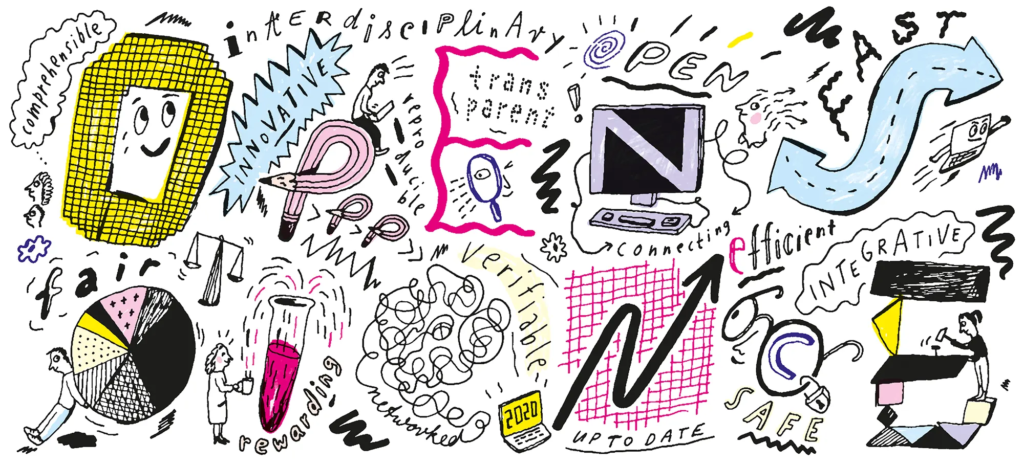home
Done anything for Open Science today? Transparent research is the future. How varied is Open Science? What are the concrete benefits of open practices for you as an economist? Just take a look. The ZBW is the Open Science Partner for economics and business studies.
At its core, Open Science is about improving the credibility and the quality of research in a digitally networked age. The most important instrument is openness or transparency.
